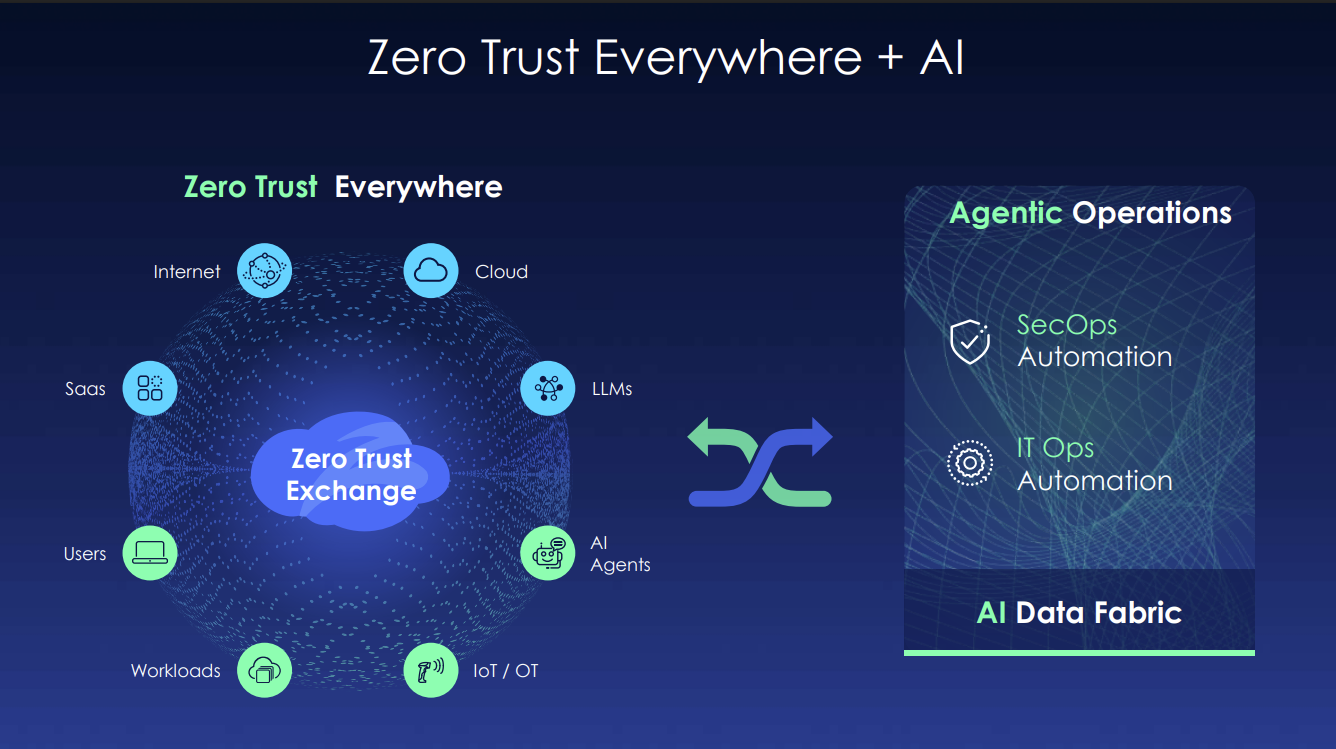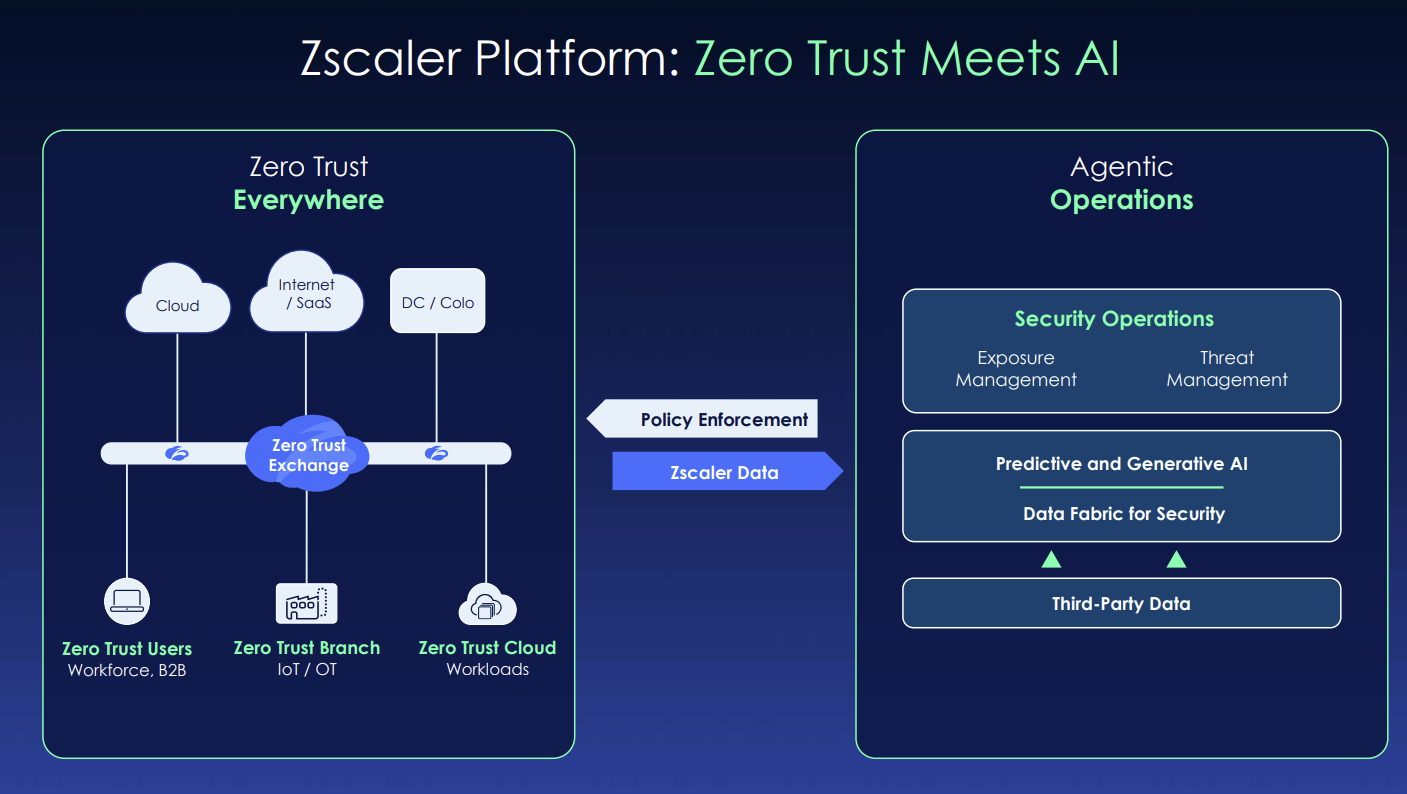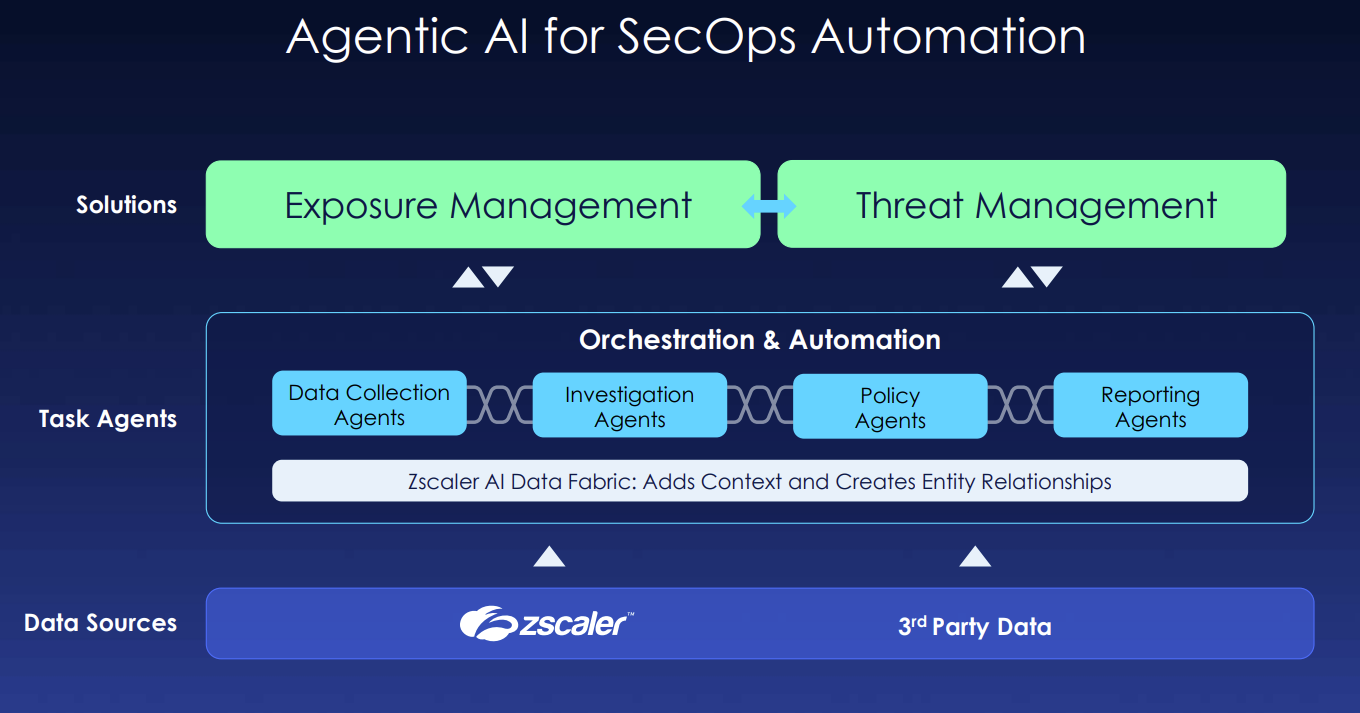Zscaler's master plan: Combine Zero Trust, data fabric and agentic AI
Zscaler has its own plans to consolidate your cybersecurity budget as it branches out from network security to securing data and agentic AI operations.
The company, which is known for its Zero Trust architecture, has been on a tear financially as it fleshes out its vision makes acquisitions to extend its platform.
CEO Jay Chaudhry laid out the vision at the company's annual Zenith conference this week. "Our strategy is to make sure we secure your data no matter where it is with one policy. When all traffic is going through us when it goes to Internet and knowing that all data leads to the Internet, we are in the best position to really provide holistic data security for us," he said.
That data and network security approach will be very relevant as AI agents proliferate. He said securing AI agents is a natural extension of Zscaler's footprint.

"Zscaler is securing users to have right access to right application. AI agents are able to do same kind of stuff that your people did. I know many call center customers who are using call center agents. There will be other agents like that. That's no different than what we do. We are securing users and with similar technology with some of the additions will secure agents as well," said Chaudhry. "Identity of the agent becomes one piece of it. And there's some other things related to if agents are reaching out to LLMs and some of the other apps. We have some enhancement being made, but we are more natural than anybody else to solve this."
- Zscaler acquires Avalor for security data fabric
- Constellation ShortListâ„¢ Security Service Edge (SSE)
- Constellation ShortListâ„¢ Microsegmentation
To deliver that vision, Zscaler has been busy.
- At Zenith, the company launched a set of updates to its Zscaler Zero Trust Exchange platform including a unified appliance for Zero Trust Branch, which secures communications between branches, campuses, factories and various IoT devices.
- The company also launched its Zero Trust Gateway for Cloud Workloads and Zscaler Micro segmentation for Cloud Workloads. Both efforts secure traffic and data running in hybrid environments.
- Zscaler also outlined a set of AI tools including AI-powered Data Security Classification, generative AI predictions with prompt visibility, AI segmentation and Zscaler Digital Experience (ZDX) Network Intelligence.
- The company also said it would acquire Red Canary, which is known for managed detection and response (MDR). Zscaler said the addition of Red Canary will give it automated and agentic workflows that can leverage Zscaler's data on its security cloud and intelligence from its research team.
Chaudhry said that Zscaler's purchase of Red Canary will give it the ability to power next-gen security operations centers (SOCs) with AI agents. Zscaler previously acquired the data fabric piece of the equation when it bought Avalor a little more than a year ago.
"The message here is really building a number of agentic technologies, agentic task agents that can do particular task, perceiving, reasoning, action being taken. It's getting very exciting, and they're all coming together," said Chaudhry.

Strong quarter lumpy cybersecurity industry
It's early in Zscaler's transformation to expand its total addressable market. The company's latest quarter stood out amid rivals that stumbled. CrowdStrike's quarter was a disappointment and Palo Alto Networks sold off despite a strong quarter.
Zscaler reported a fiscal third quarter net loss of $4.1 million, or 3 cents a share, on revenue of $678 million, up 23% from a year ago. Non-GAAP earnings were 84 cents a share. Those results were well ahead of estimates.
As for the outlook, Zscaler projected revenue of $705 million to $707 million with non-GAAP earnings of 79 cents a share to 80 cents a share.
For fiscal 2025, Zscaler is projecting revenue of $2.659 billion to $2.66 billion.
Chaudhry said the Zscaler platform has more than 50 million users and that is creating a network effect for data. The company's Zero Trust Exchange processed more than 100 trillion transactions in the last year, blocked 60 billion threats and enforced 5 trillion policies.

The game plan for Zscaler is clear: Take that data flywheel, which generates more than 20 petabytes of data, and use it to power the AI agents that'll automate cybersecurity operations.
"While legacy vendors are attempting to cobble together disjointed point products and calling it a platform, we are constantly expanding our core Zero Trust exchange by integrating new functionality to solve more and more of our customers' security concerns," said Chaudhry.
He noted that customers remain cautious about IT spending, but they're interested in taking out costs. The big question is whether Zscaler, Palo Alto Networks or CrowdStrike turns out to be the security budget consolidator over time.

